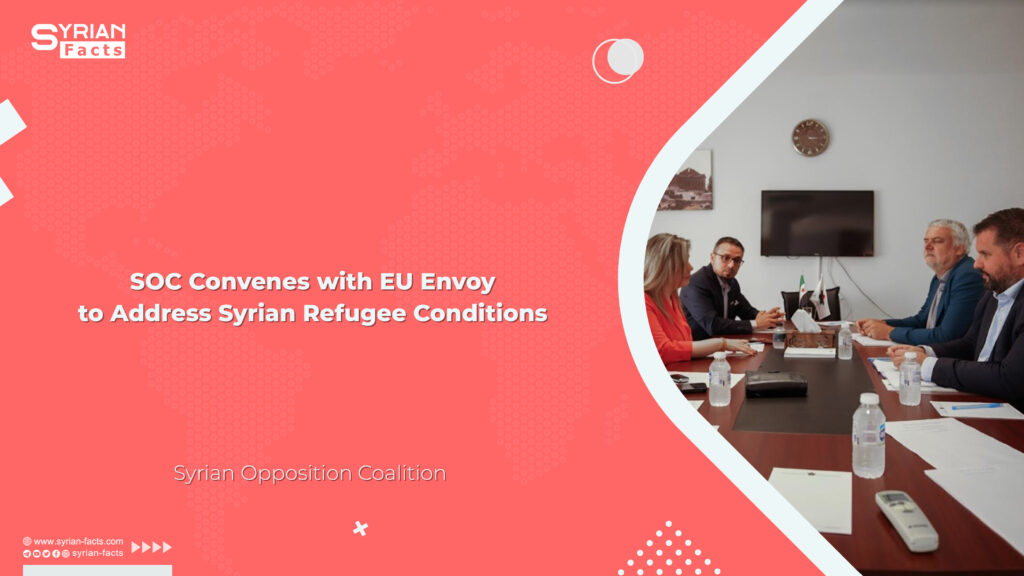Vice-President of the Syrian Opposition Coalition (SOC), Ruba Habboush, held a meeting with the Head of the European Union Mission to Syria, Dan Stoenescu, in Istanbul on Saturday. They discussed the importance of revitalizing the political process in Syria and rejecting the ongoing normalization process with the Assad regime by certain countries.
Secretary of the SOC’s Political Committee, Abd al-Majid Barakat, along with committee members Salim Idris, Zuhair Muhammad, and Ahmed Tomeh, participated in the meeting. A member of the European Union delegation, Boris Fantonique, was also in attendance.
Habboush emphasized the significance of regular and continued meetings, particularly given the current political situation and stage. She expressed that the Syrian people eagerly await greater efforts from the European Union and the United States to advance the political process. Habboush stated that allowing the Assad regime back into the Arab League would disregard UN Resolution 2254 and undermine the Syrian revolution and opposition forces.
Habboush highlighted the necessity of supporting the political entities responsible for the political process, recognizing the role of women in this endeavor, backing the liberated areas, and preventing early recovery from transforming into reconstruction that would financially empower the regime. She emphasized that the Syrian people anticipate concrete actions from the European Union to counteract normalization with the Assad regime.
Barakat discussed the importance of focusing sanctions on the Assad regime and its supporters. Simultaneously, he acknowledged that sanctions alone cannot topple the regime or change its behavior due to its establishment of a parallel economy and the support it receives from allies.
Salim Idris, the coordinator of the SOC’s Office of Refugee Affairs, addressed the abuses, racist campaigns, severe restrictions imposed on Syrian refugees in Lebanon, along with the closure of hospitals and schools, and torture of Syrian prisoners. He urged the European Union to play an active role in halting escalating racist campaigns conducted by Lebanese authorities and to apply pressure to prevent the deportation of Syrian refugees to the Assad regime.
Stoenescu, in turn, emphasized the European Union’s commitment to these meetings and their significance. He stated that the European Union remains dedicated to supporting the Syrian people, no matter their location, and clarified that the EU does not support normalization with the Assad regime.
Stoenescu stressed that there are no plans to lift the sanctions against the Assad regime, citing the absence of any change in its behavior. He further clarified the European Union’s stance, stating that there will be no reconstruction or lifting of sanctions until a political solution is reached.





Be the first to write a comment.